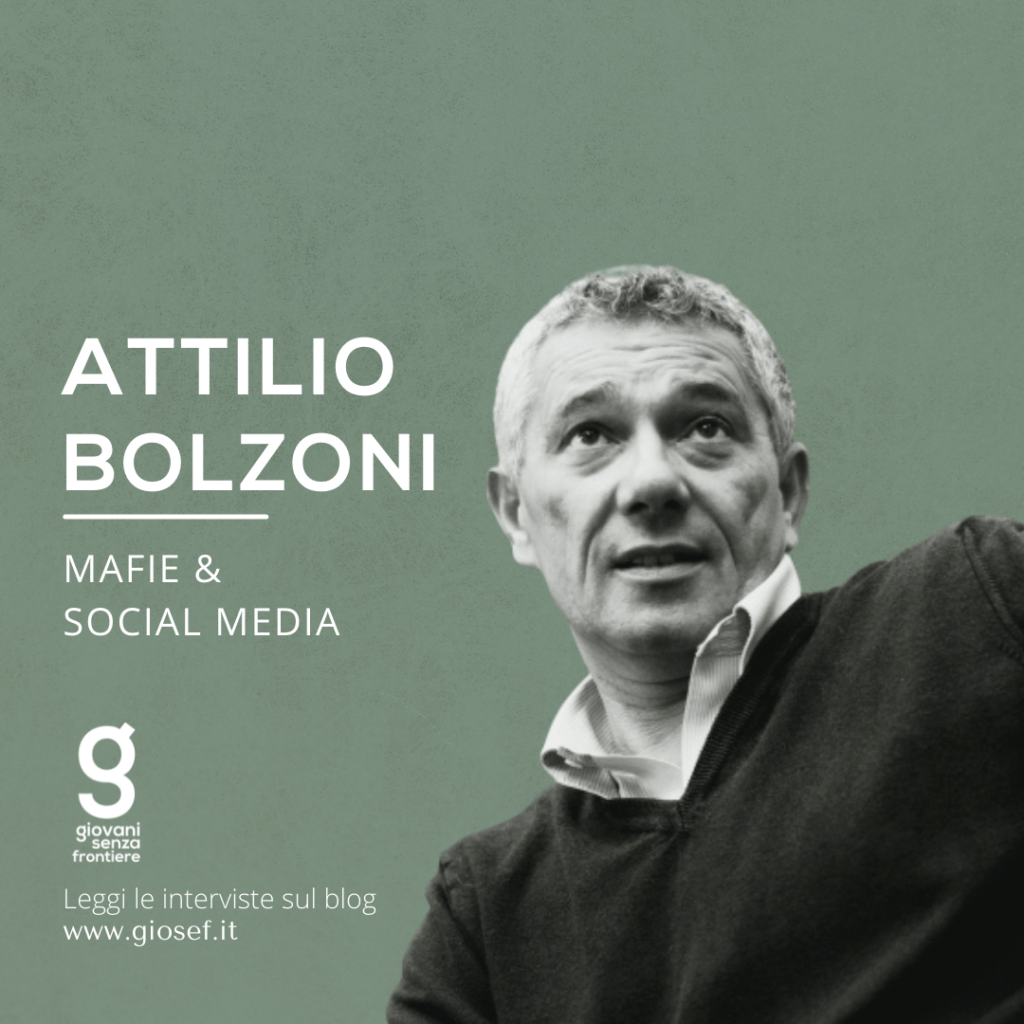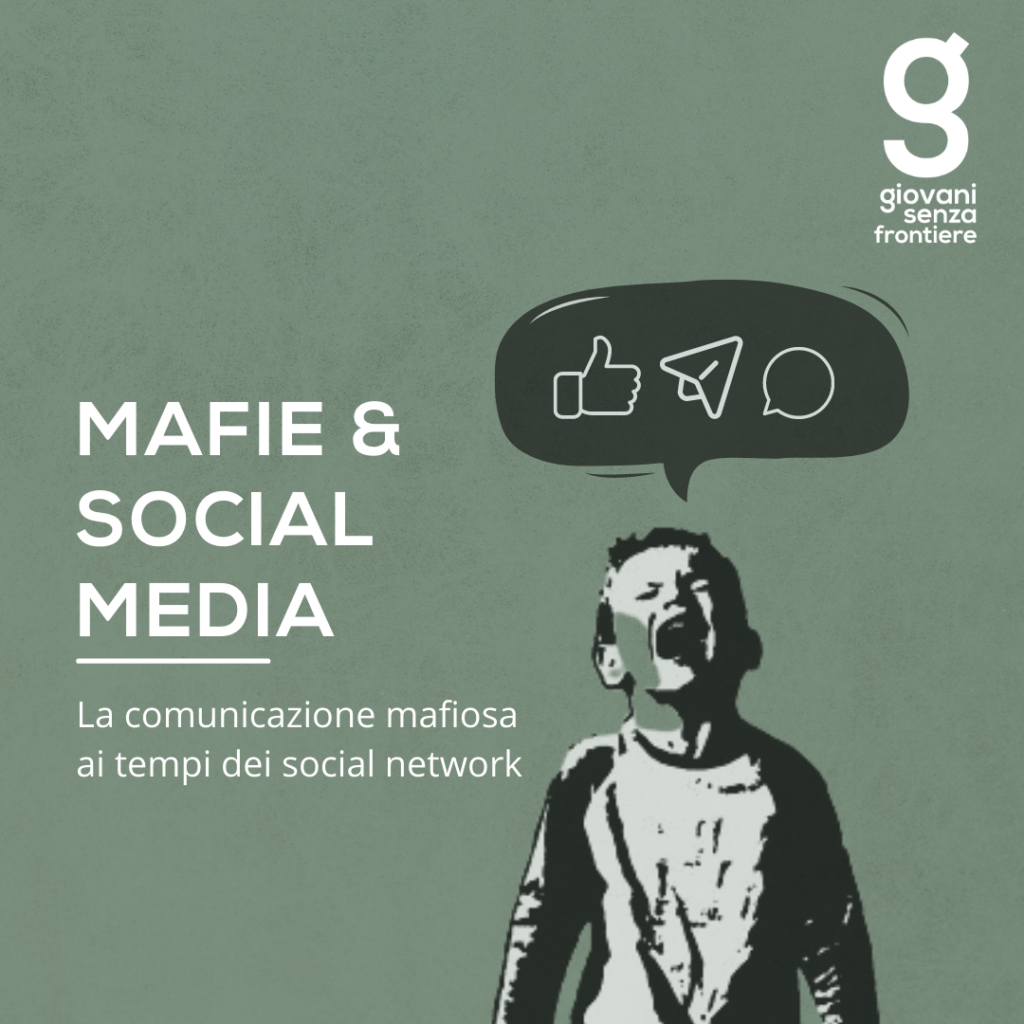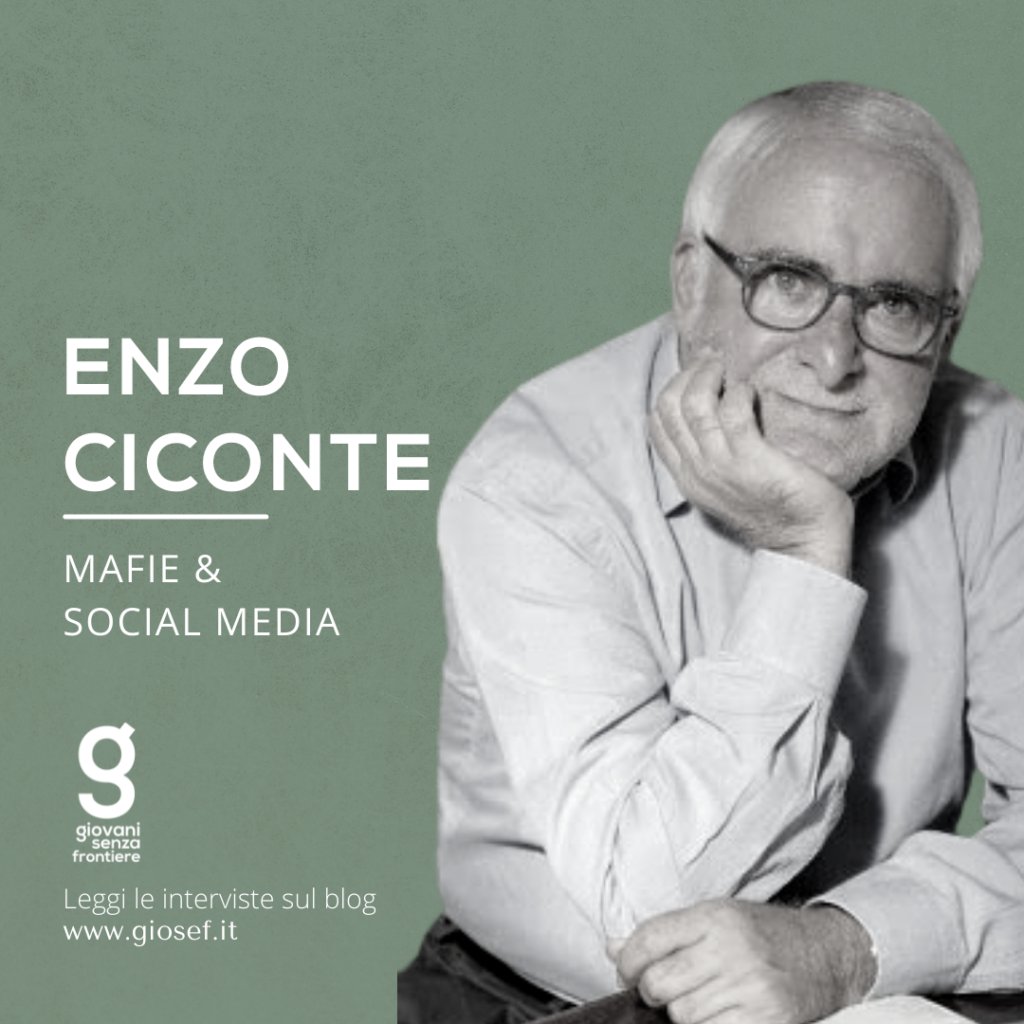Attilio Bolzoni has reported on all the major Mafia massacres, the murders of General Dalla Chiesa, the investigating magistrate Rocco Chinnici, Doctor Giovanni Falcone and Doctor Paolo Borsellino. He started working with the daily newspaper ‘L’Ora’ and he was then a correspondent for Repubblica since 1982. He won the prize for journalism for having told the story of Sicily and the mafias for over thirty years and in 2019 he wrote his latest book, “Il padrino dell’antimafia” published by Zolfo Editore, where he tells the story of Calogero Montante, the now famous “pupo e puparo” of “Sicilian legality”. Today he writes for “Domani” the new daily paper of Carlo De Benedetti.
The subject of our interview is a reflection on the evolution of mafia communication in the era of social networks. If we think about how much difference there is between the idea of the mafioso with the lupara and the coppola “who knows nothing and says nothing” and a Luciano Leggio who in 1986 was interviewed on television by Enzo Biagi: How has the way the mafias communicate evolved in history?
“There is a great superficiality of information on these themes. A lot of recitation, a lot of floating information and little real knowledge.
Let us start from Palermo. At a certain point, in the Zen quarter, after the arrest of one of the presumed mafia bosses of the place, who had become famous last year for distributing food to the people of the quarter, the equilibrium changed and become unstable. So, one evening a shooting took place. It happened just a month and a half ago, a big shootout.
Three are knocked down, three end up in the Villa Sofia hospital in the emergency room: one has a bullet that shatters his ankle, one his shoulder, so far so good. They return home and the challenge, which had started in the street with gunshots, is transferred to Facebook, they insult each other on Facebook. So Maresco is right in his film “There is no longer the Mafia of the past”. That is, the Mafia is a secret, criminal organisation and they go on Facebook. So what are we talking about? Is this the Mafia? Or that of the “new Mafia bosses” who are in the Gulf of Mondello on jet skis, taking selfies and shouting, screaming and laughing?
The opposite of what we thought the mafia was in the previous 50, 100, 300 years. There is an anthropological change. An anthropological change that “from the ricotta cheese” and from that vegetable called chicory – as the old uncle, Bernardo Provenzano, used to say – arrives at all that is expensive, exclusive and rich. But is this the mafia, or is it the representation that the power wants to give to the mafia? For me, the mafia is not this, this is the mafia of the pavement, the mafia of the bourgeoisie of blood and shit. The real mafia is the mafia of all times, which makes agreements with the power and is silent, which makes agreements with politics, with the finance, with the entrepreneurship.”
In recent years, we have seen the proliferation on Facebook of groups and pages that convey mafia messages. An emblematic case is the group ‘Honour is Dignity’, which gathered almost 20,000 followers and was discovered to have been created by Vincenzo Torcasio, the boss of a ‘ndrangheta’ clan who was sentenced to 30 years in prison, in 2017. What are the risks and dangers around such a phenomenon? The fact that a more or less influential Mafioso can, through the social tool, launch these criminal messages to citizens, what risk does it represent?
““You have given this example, but do we want to talk about the son of Totò Riina, who has his own page? Do we want to talk about the first son-in-law of Totò Riina, Tony Ciavarello, who intervenes on Facebook and launches threats against my fellow journalists? The risks are a lot.
I’ll tell you something that few people know because I’ve kept it quite private, but this is an opportunity to talk about it. Two and a half years ago I had a blog in Repubblica, which is now in Domani. At a certain point, I asked the President of the Senate, Grasso, a bishop, the Minister of Justice, Orlando, five or six officials of the DIA, five or six famous magistrates, to speak on 23 May, and each of them gave me a reflection that I began to publish on my blog. After two or three days Facebook blacked me out. Then, it blocked the President of the Senate, the Minister of Justice, a bishop, 5 officials of the DIA, 5 high magistrates, interventions neither obscene nor out of line. They were memories of Doctor Falcone and Doctor Borsellino.
Why did this happen? Because someone intervened. He pointed out these posts, which Facebook, without making an investigation, but with the infamous algorithm, obscured. So, this tool is terrifying. If ‘Honour and Respect’ is online, if Riina’s son can do it and then the President of the Senate or the Minister of Justice cannot intervene, there is something extraordinarily dangerous”
Couldn’t it be a useful tool to investigate starting from the administrators of these Facebook groups, from those who create these Facebook pages? Are there any journalistic enquiries, even international ones, based on the observation of social networks?
“Italy is ahead of other countries on these issues. I’ll give you an example, we’re moving onto another front, but we’re talking about the same thing. In Germany there is a festival in Berlin, a festival of bad music. And there is a gentleman, Francesco Sbano, from Calabria. He has sold tens of thousands of CDs over the last few years, with the SIAE stamp in Germany. Some of these songs have criminal lyrics. There is one against General Carlo Alberto dalla Chiesa, which says: “They killed the general / he didn’t even have time to pray / so he was quickly sent to the Lord / The Mafia is a criminal law that leaves you alone as long as it wants / but if you tease it / the moment comes when it moves”. He writes songs about the exploits of the mafia, passing them off as Calabrian folklore and tradition.
They give lectures in Germany, with policemen from the bka criminal police, university professors, journalists from Der Spiegel, where they talk cheerfully about this Calabrian tradition.
In Italy we have a lot of mafia but, fortunately, we also have many antibodies because we have one of the best anti-mafia legislations in the world, we have different sensitivities, because we have had so many deaths and so many injuries, so don’t think that other countries can intervene on these things.
Mafia is the most famous Italian word in the world, more than pizza, more than spaghetti, but it is considered folklore and they do not know that it is a criminal power. In my opinion, they will never realise this abroad, also because the representation of the Mafia is that of the films, of the Mafia that is with the people. Actually, it is never with the poor, it is always with the rich and the powerful. But the fact is the same, the slice of meat is always the same. Mafia, organised crime, stuck with power”.
But let’s also think about the role of young people in this whole situation. If it is true that the mafia always manages, in some way, to adapt to society, shouldn’t the anti-mafia also be, in this sense, closer to the instruments with which it communicates to the young?
“While the mafia and mafias use new languages and adapt to the times we live in, the anti-mafia has an ancient vocabulary. The vocabulary of the Santini, of the catechism. It is a “religious” anti-mafia, in perennial pose. And it uses a language that the young people of today do not understand, because they were not there, because the massacres happened before they were even born. This is the most serious thing of all: you learn by heart, but you don’t elaborate. In my opinion, this is the most serious thing: knowledge should never become rhetoric. This, therefore, is an anti-Mafia act. It is devastated by commonplaces, by the rhetoric of the interests, by much money that has arrived, it is an anti-mafia which has lost, in my opinion, much of its credibility. The more one moves away from the massacres, the more it loses it.
Also because when the mafia was shooting, it was weak. The mafia with the Kalashnikovs, with the massacres, with the TNT at Capaci and Via D’Amelio was a mafia in difficulty, cornered.
In the same way, the anti-mafia is weak because it cannot find a language, it cannot find answers. For twenty years, they have always been talking about the same things; it is a circus, an act. They propose the image of the Judges killed as saints, when in fact they were just men, with feelings, with their genius, and it is a vulgar, vulgar way of representing the sacrifice of those people who were ‘lay’ and not religious, workers, not saints to be worshipped”.
I really think that journalism in general should start from this, because apart from you and very few others, there is very little talk of the Mafia and mafias.
“This is the issue. There is little information and a lot of communication. Journalism has become communication, so it is no longer journalism, it has become advertising.
It’s not that people don’t buy newspapers any more because they are bizarre but because newspapers have lost credibility. Just think of the Montante case that you mentioned. He had journalists on his payroll, he had 20, 30, 40. He became the lighthouse of the anti-mafia in Italy with the Minister of the Interior, Alfano, who is in the firing line, with the Chief of Police, with the heads of the services, who are all on trial. I don’t want to be defeatist because there is always a piece of the State that works, but journalists have not done a good job.“
Thinking instead of those journalists who, in times gone by, have done a different kind of journalism, irreverent, against the mafia, we could remember Peppino Impastato and think of his way of doing anti-mafia, how up-to-date he was with his radio with that instrument so close to the young…
“Crazy, crazy. Peppino’s father was a mafioso, his uncle was a mafia boss 100 steps away, and he was alone, desperate. Peppino Impastato used to say ‘the mafia is a pile of shit’ but it made sense in 1976, ’77, ’78 because he was just desperate, he was a rebel, it was a cry of pain, anger and rebellion. But there are journalists who write it today, after 40 years. The Mafia is a pile of shit: they are idlers. They are idlers because today, after 40 years, after all the sacrifices, it is necessary to go on. Doctor Falcone, doctor Borsellino, all the magistrates killed. You should have said it 40 years ago, the mafia is shit, like Peppino did. Revolutionary gesture, surreal. If you say it today, in 2020 or 2021, you’re a poor man, you’re a smart-ass. Speaking of which, a few days ago, Giovanni Impastato, Peppino’s brother, sent me his manuscript, a novel about his brother’s story. I read it at night, amazing. In the next few days I’ll write a page in Domani because I found it wonderful”.
Italian subtitles are available for the hard of hearing.
In the coming weeks we will publish all the content produced on our blog and social channels: Facebook and Instagram.
The complete video interviews will be available on Giosef italy’s Youtube channel.



